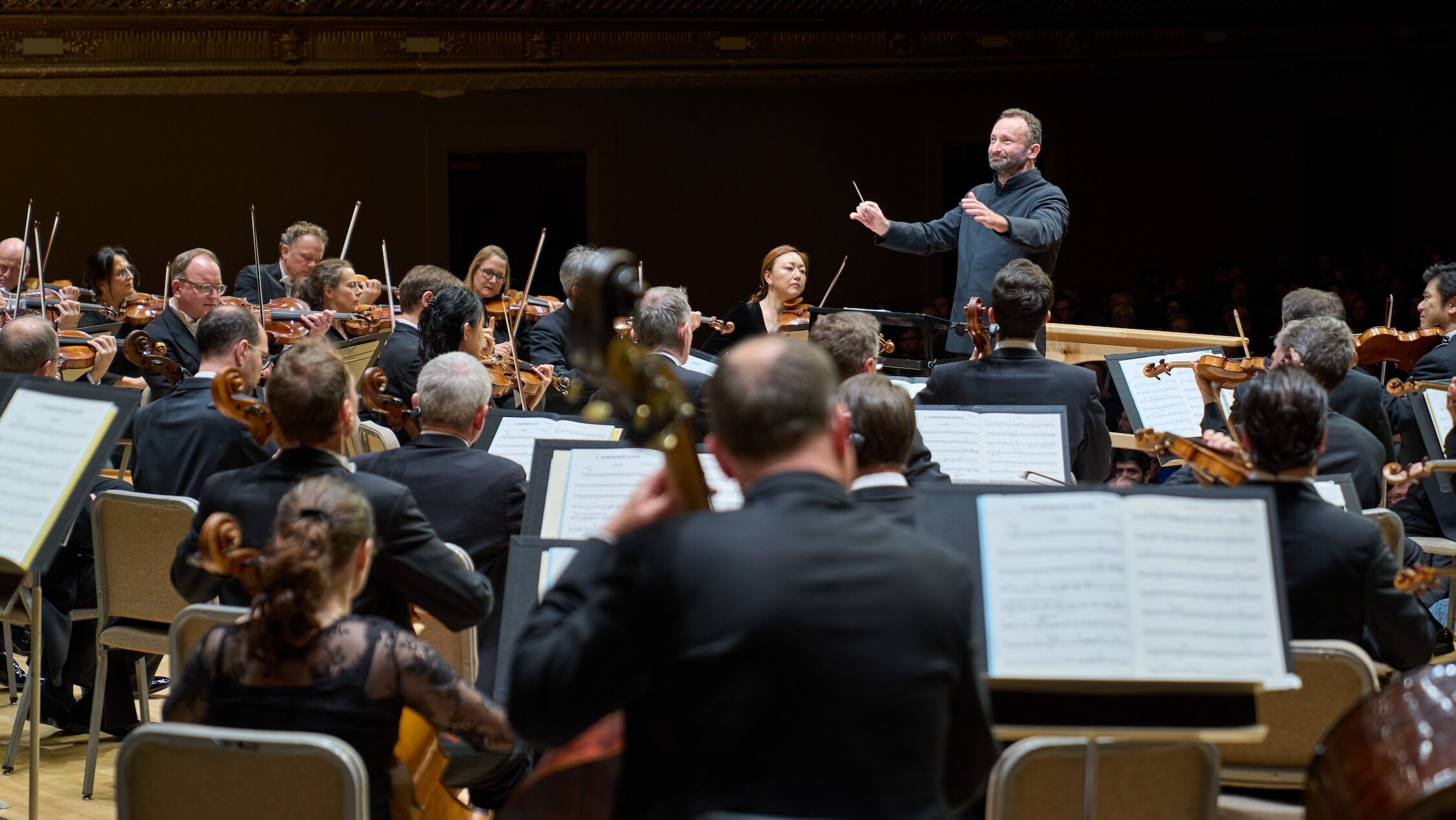
It’s all lies, all make-believe, a farce within a farce. The noble heights reached by Mozart‘s music—is this his most sumptuous jewel-box of a score?—and by Da Ponte’s poetry throw into deep relief the smallness, the meanness of the silly goings-on. The action is a sham; only the heartbreak is real.
As every parterre reader probably knows already, Così fan tutte (“All women are like that”) is a sexy, silly comedy about a behavioral “experiment” conducted by a jaded and misogynistic philosopher, Don Alfonso (Minki Hong). He bets Ferrando and Guglielmo (Michael John Butler and Dongwei Shen), two boys with unrealistic ideals of their respective fiancées’ fidelity, that all they have to do is put on a couple of cheap disguises and swap conquests, and then, if they just push the deception far enough, eventually they’ll find the breaking point of their seemingly perfect lovers, the sisters Dorabella and Fiordiligi (Tivoli Treloar and Kayla Stein). With the help of a maid, Despina (Theo Hayes), who is as far beneath conventional morality as Alfonso is above it, the experiment is a success, as the boys eagerly compete to break each other’s hearts and those of their lovers. The ruse finally revealed, the lovers rejoice in having been disillusioned and happily pair off once more.
Let’s get it out of the way: no, this production, transplanted to 1967, is not exactly the first production to set Così fan tutteduring the Sexual Revolution. Like Doris Dörrie’s 1970s-themed production from 2001, director Mo Zhou’s vision for the opera dresses the disguised lovers (“Tizio” and “Sempronio”) as wandering hippies rather than exotic foreigners—but it works here for the same reason that it works there. Whether it’s the Swinging ’60s or the Ice Storm ’70s, the period marks a moment in living memory when, as in the Enlightenment, radical thinkers took a wrecking ball to conventional morality in the name of liberation, and it allows the director to register this shift for the audience in ways that are more visually, dramatically, and comically legible to a contemporary audience than 18th century Viennese stereotypes about Albanians.
This Così is set in psychedelic San Francisco, but at the start of the piece, the boys are dressed (by designer Andrea Hood) in high Ivy style to meet a beatnik Alfonso in front of the City Lights Bookstore, and the girls make their appearance surrounded by lysergic posters but buttoned up into severe, conservative costumes and hairstyles, while waited on by an anachronistically proto-punk Despina in a dyed, spiky wig and glittery combat boots—all four lovers immersed in the hippie milieu and aesthetic, but spiritually trapped in the mores of their parents’ America. Dörrie named Hollywood musicals as the inspiration for her Così, but the design of Zhou’s production (by Charlie Corcoran) gestures yet more vigorously in that direction, with modernist furnishings and technicolor palettes straight out of a Doris Day–Rock Hudson picture.
Rock Hudson is even namechecked in the supertitles, which take liberties with the libretto to throw in references to the Vietnam War, where the boys pretend to have been drafted in order to stage their quick-change routine, and other references better suited to the updated setting. Is it petty of me to feel like this is “cheating,” somehow? Probably. I was also mildly annoyed by Zhou’s attempt to repair the opera’s bizarre conclusion: in the libretto, the bros have just abused, manipulated and deceived their girlfriends, not to mention cuckolded each other, in order to win a bet; the sisters have just demonstrated that they’d be willing to fuck a couple of near-strangers literally the day after their fiancés marched off to risk their lives in a war. Now they’re all gonna kiss and live happily ever after?! Don Alfonso, the almost Satanic figure who has been using lust and avarice to manipulate every other character in the opera, is suddenly its moral authority?! Again, Zhou is far from the first director to try a patch job on this nonsense, but her solution—that the would-be brides storm off to join the Women’s Liberation movement—seems even more pat than the original, which at least seems outrageous enough to undermine its own conclusions.
I couldn’t see this ending without being reminded of the deeply unsettling play BAM put on a bit ago, Tiago Rodrigues’sCatarina e a beleza de matar fascistas. Catarina represents a very different sort of thought experiment—a sort of Trolley Problem about the limits of both liberalism and violence as responses to fascism—but it lands willfully and resoundingly on the “wrong” conclusion, with the last word given to the nastiest character in the drama. But the point of the Trolley Problem (as Rodrigues observes) is that there is no right answer to the question; however we choose to solve it tells us only about ourselves and our own moral values. Perhaps directors should take this approach with Mozart and Da Ponte’s troubling ending, rather than intervening to spoon-feed us the correct opinion, and instead allowing the audience to sense that we must find our own way between the prison of heteronormativity and the void of nihilistic hedonism.
Or maybe I’m overthinking it. This is an opera where guys put on fake mustaches to fuck each other’s girlfriends.
Anyway! The musical performances were nothing short of delightful. The pit orchestra, led by Patrick Furrer, raced nimbly through the score at the requisite screwball tempi, and the voices of the ensemble blended exquisitely. A persnickety listener could mark the moments here and there when the soloists fell short of perfection; I like a little more heft on the low end from an Alfonso or a Fiordiligi, and when Stein reached the high end of her part’s enormous range, occasionally she’d fall a hair flat. Butler’s top register wore a little thin in “Un’aura amorosa,” though he recovered easily in the second act. And while Shen’s legati were luscious, I wished he could have shown a bit more spring in his step both vocally and—given his relatively low-key presence—dramatically. For that matter, Hong could have mugged a little more broadly to fill out the part, though he brought a bright and affable persona to the stage.
But these are nits. More than just pretty voices, the cast brought real musicianship to their performances. The ladies, singing with fire and fervor, stole the show, especially Despina (as a Despina must), who brought a solid gold voice to the part’s intriguing lines and real star power to her comic portrayal, but charm of the cast went a long way towards helping me forgive the naïveté of the dramatic persona and helping me to sympathize with them even at their nastiest or most stupid.
And something fascinating happened when Guglielmo changed into his frilly hippie costume: Shen’s portrayal locked into place, his smooth and careful gestures suddenly making sense in the mock opera seria of his character’s character. It helped me to answer a question that’s always bugged me: why are the boys going through with this? Like, why are they, really? They’re torturing themselves and their lovers by going along with this bet! Is it really just the money? Well, okay it could be. “Cento zecchini” would’ve been a ton of cash! They’re also a couple of young, dumb, testosterone-fueled dudes competing with each other and with Alfonso. But could there be another reason? Sometimes, when you put on a disguise, it’s not to conceal your true self but to reveal it, acting out in ways you wouldn’t dream of doing with your face exposed. Maybe Tizio is the real Guglielmo—you know, like how Batman is the real Bruce Wayne. Maybe this farce is really, on some level, about boys giving themselves permission to break their own vows.
Even the sisters, though toyed with and tormented by Alfonso and their lovers, achieve a certain liberation by way of the charade, as sadistic and unfair as it might be. Their feminist turn at the end of Zhou’s production doesn’t come out of nowhere: once Despina advises them to play along with their fauxhemian beaus, they literally and figuratively let their hair down and allow themselves to enter into the spirit of the age, changing into fully hippie regalia. It still smacks of fanfic to have them do what you and I and Zhou and any 21st-century opera lover with a conscience wants them to do, and ditch the boys in favor of Women’s Lib—but it’s also hard to imagine, once they’ve tasted that freedom, that they could be satisfied with boring old Guglielmo and Ferrando.
“Così fan tutte”? I don’t know about that. But wouldn’t it be great if they could?
Photos: Richard Termine
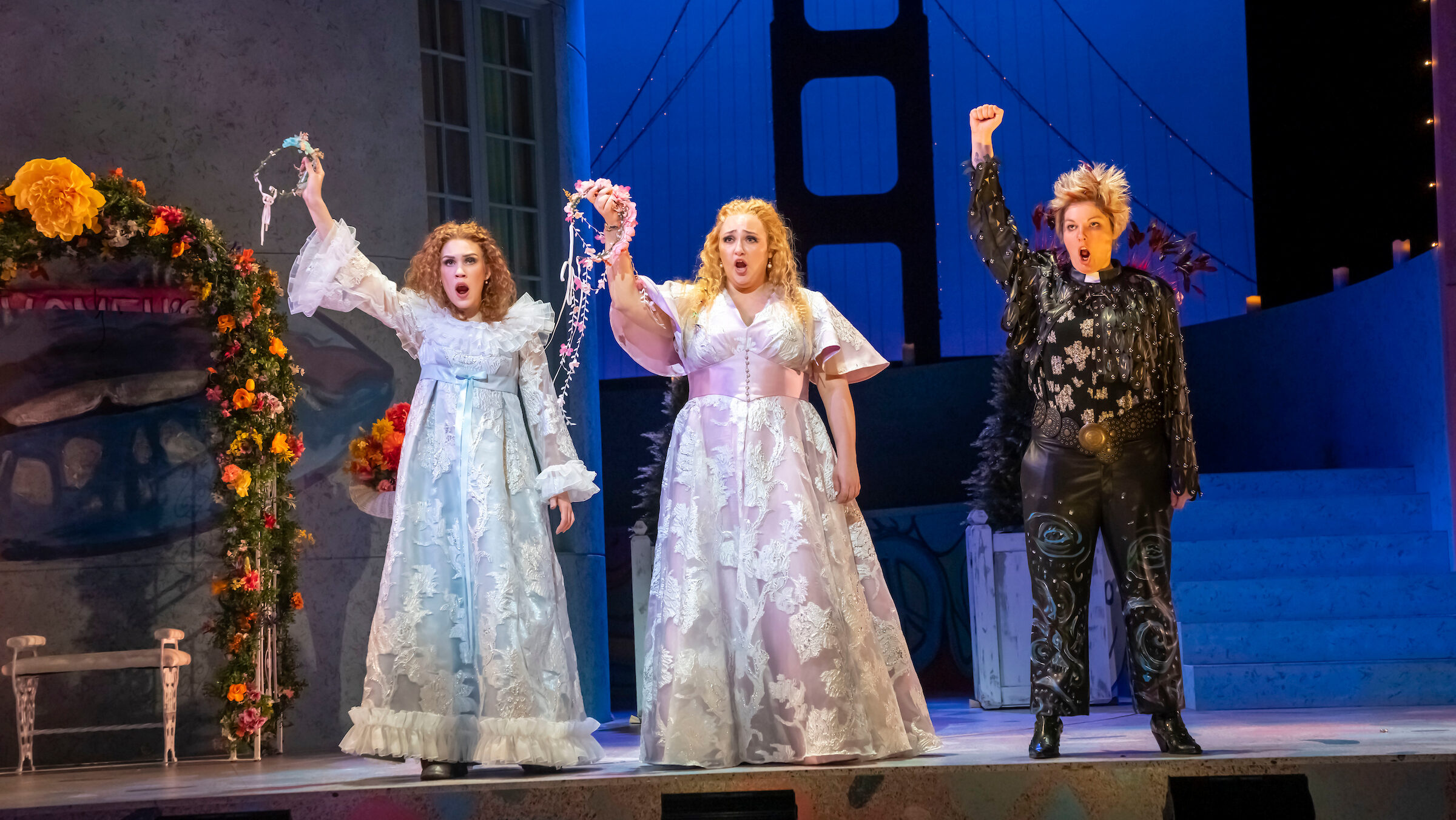
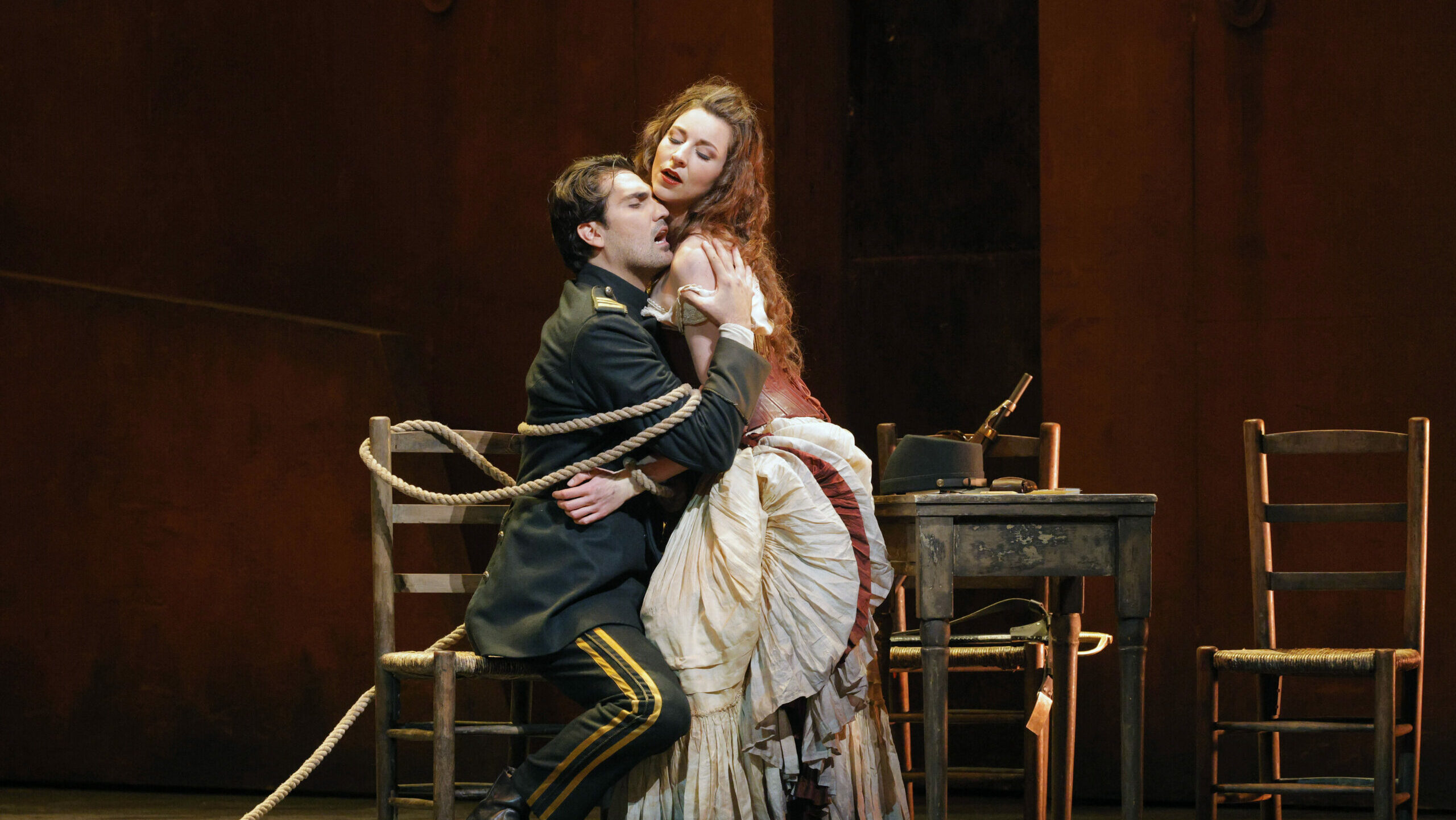


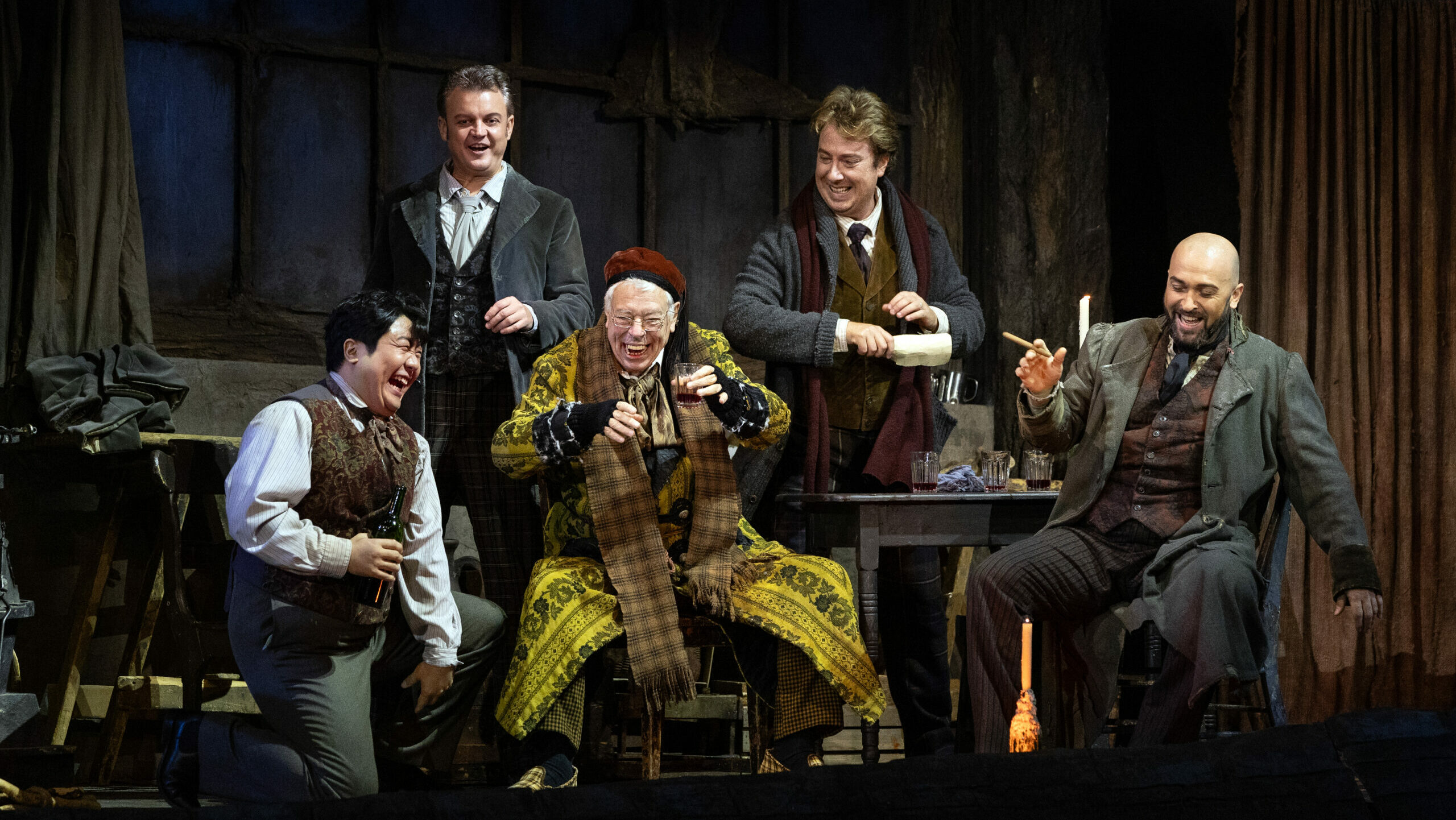
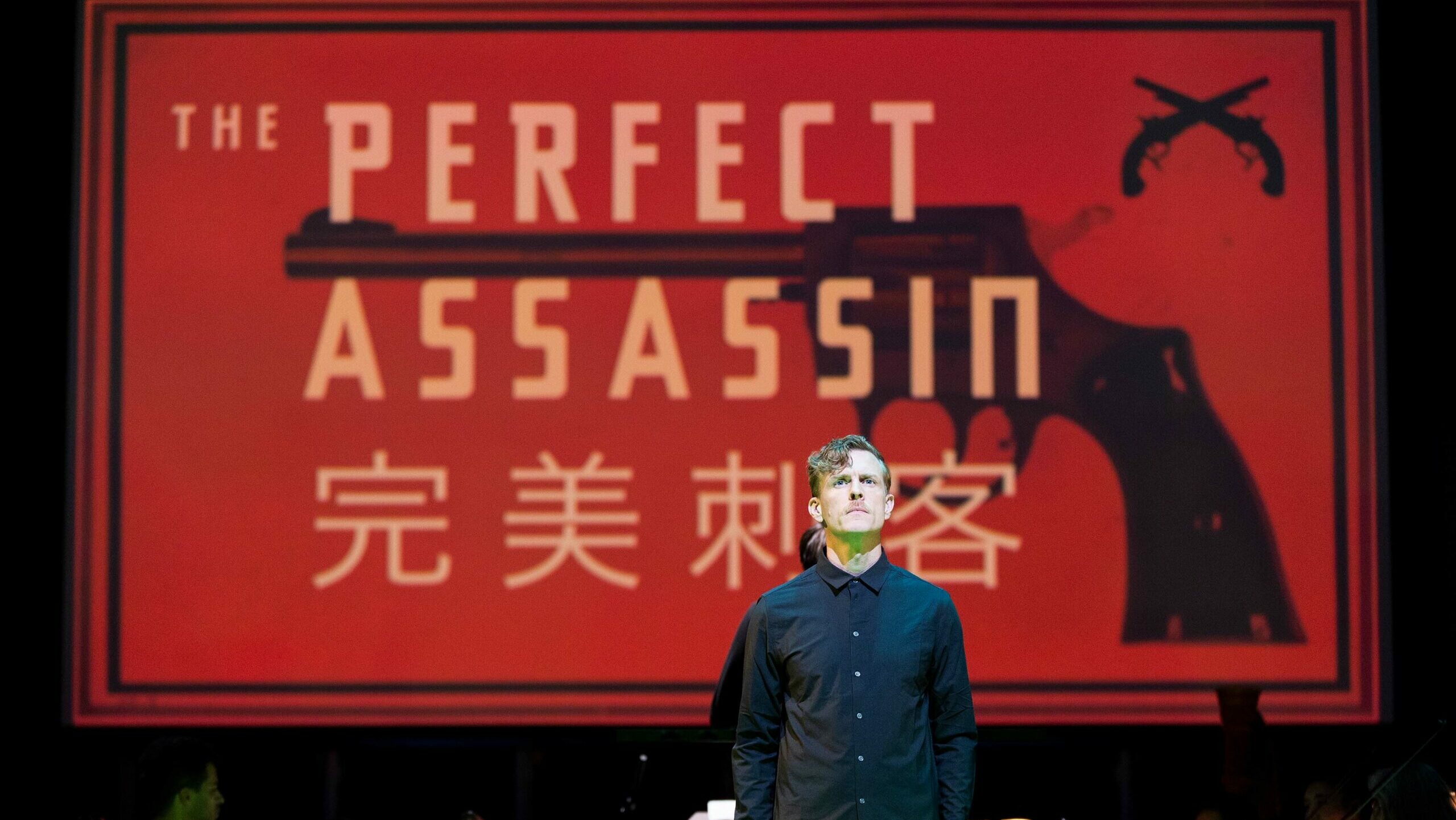
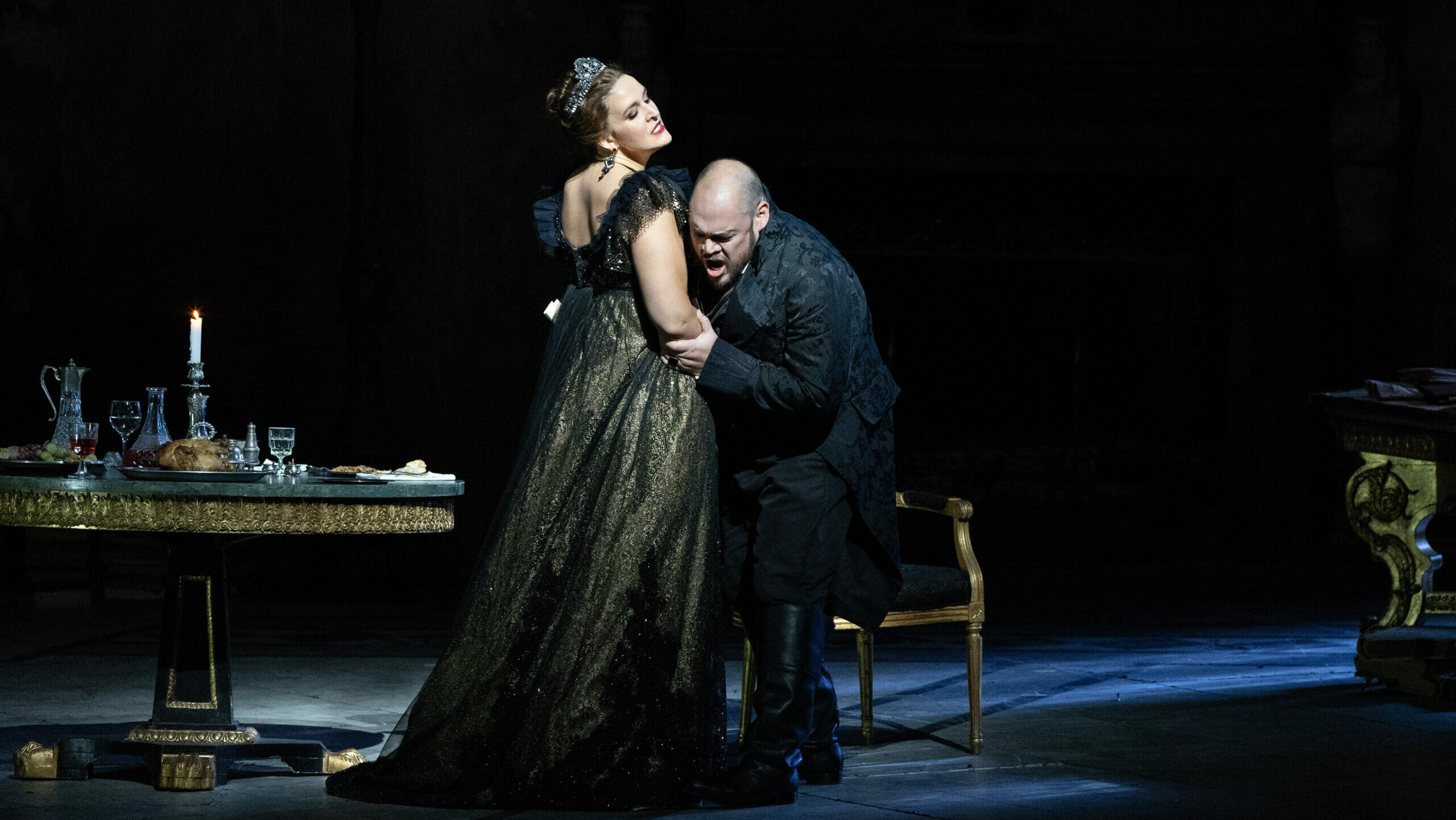


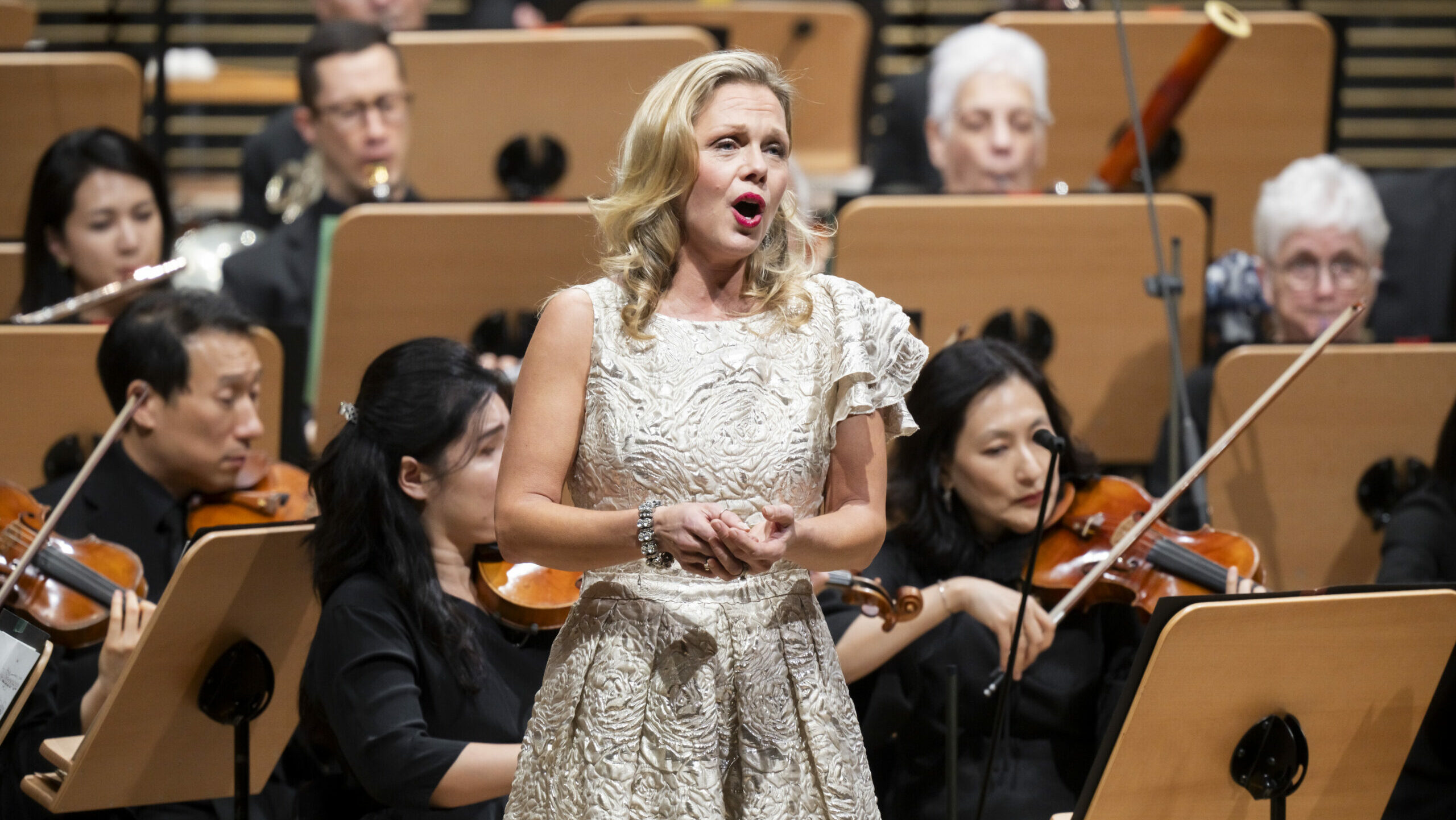
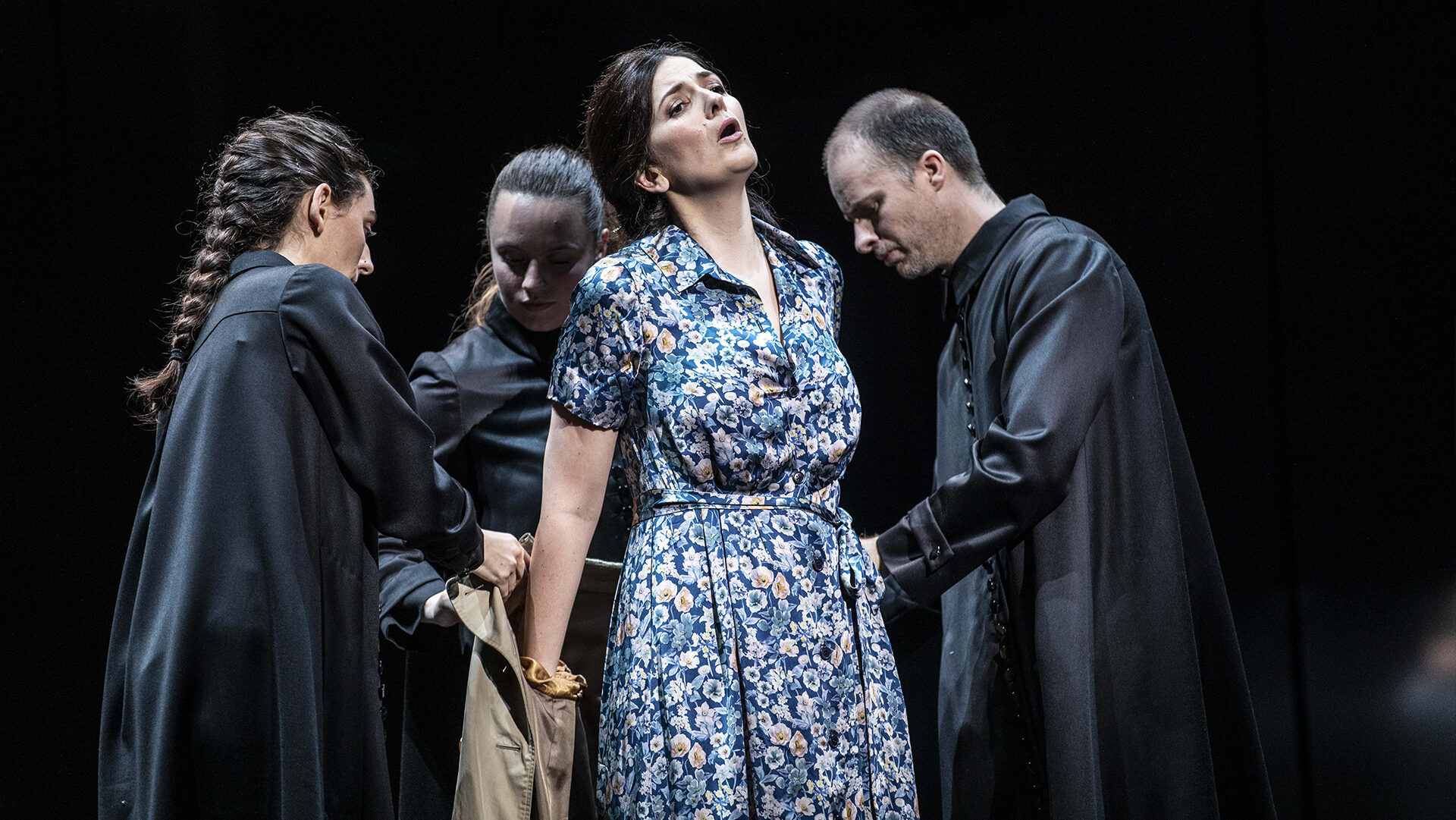
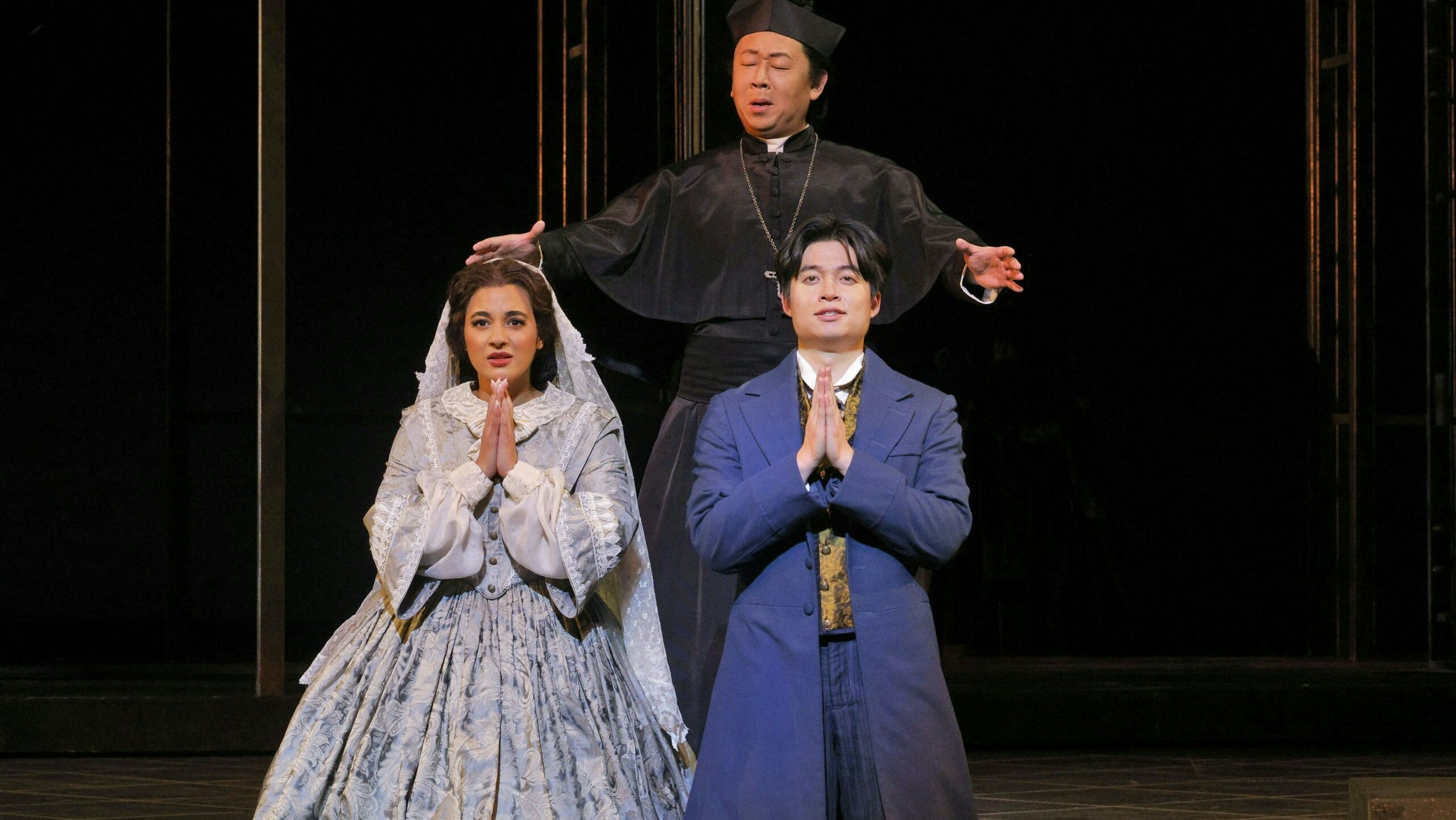
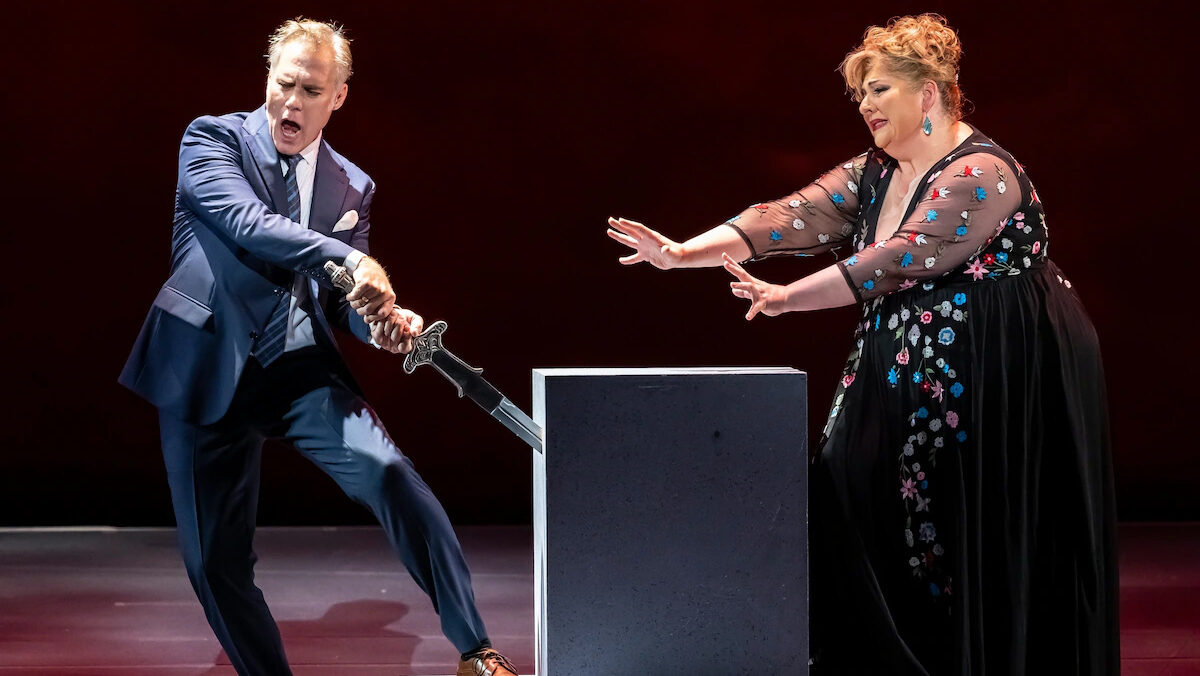
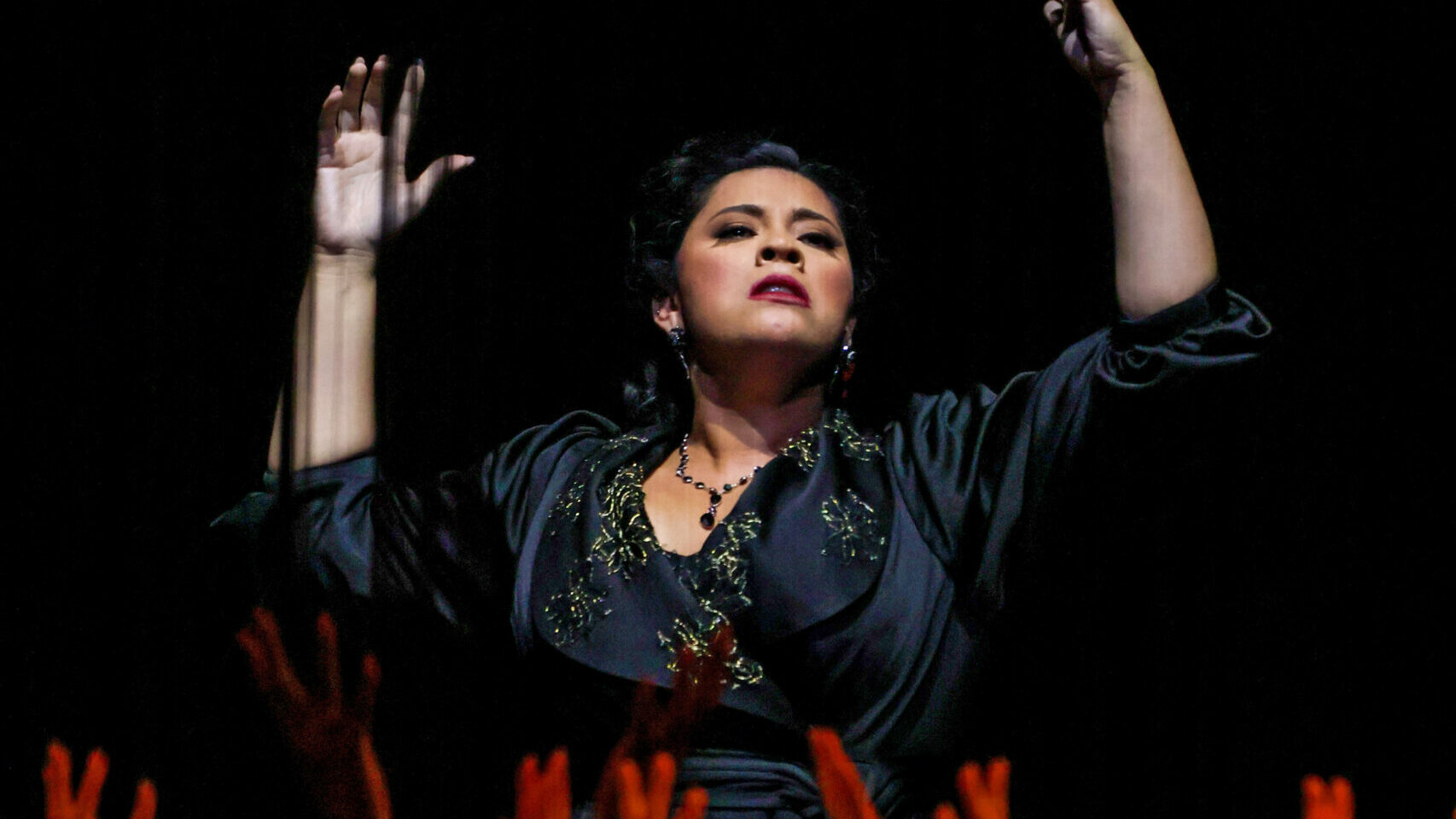
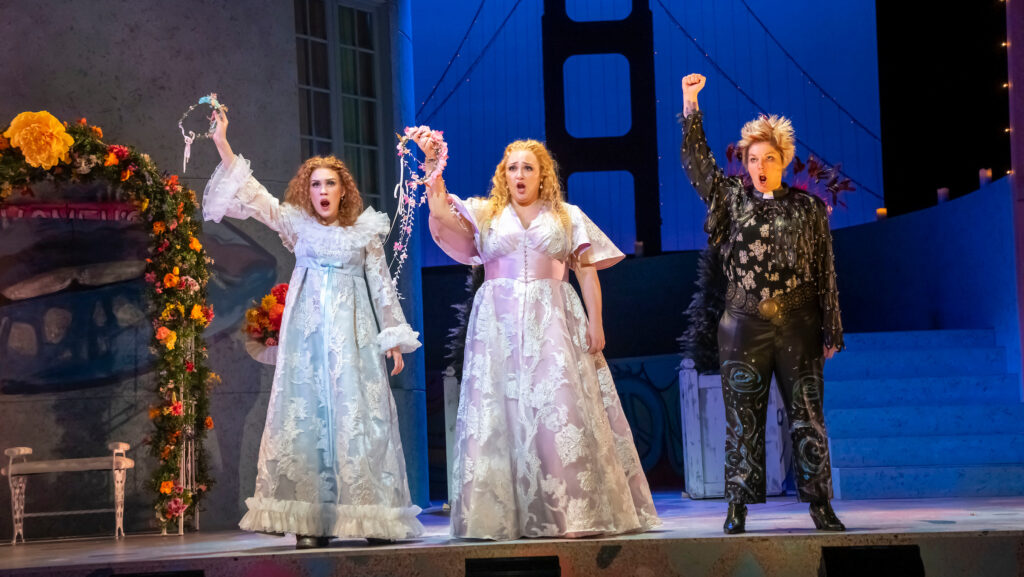
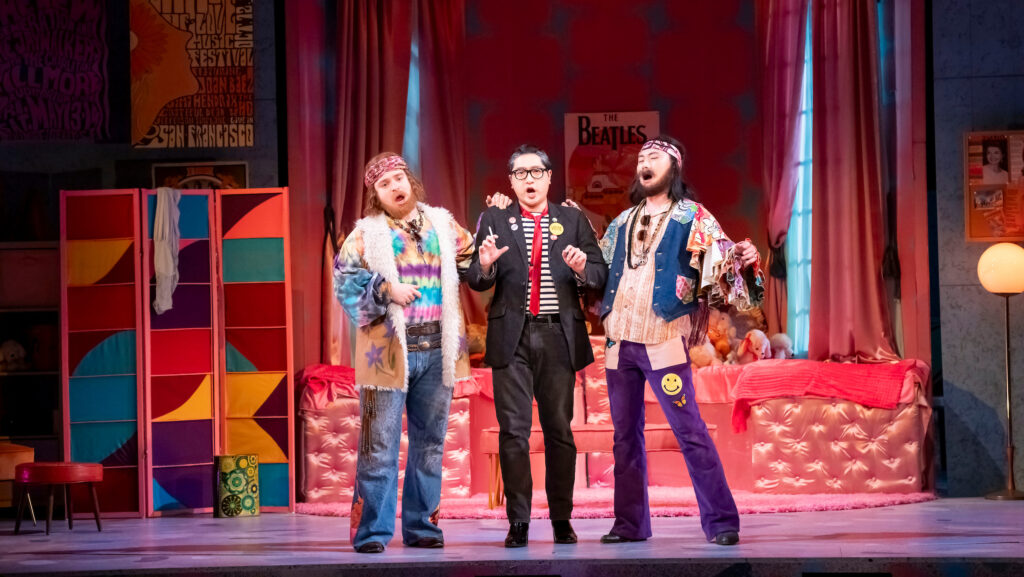
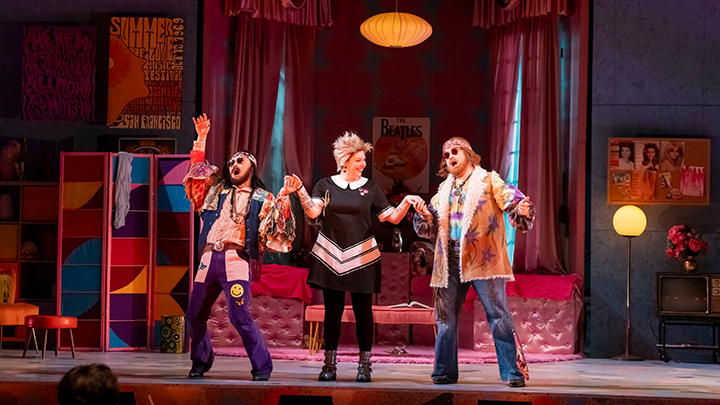
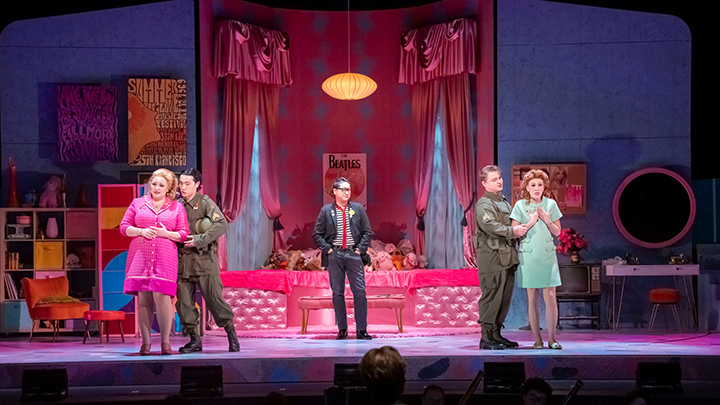
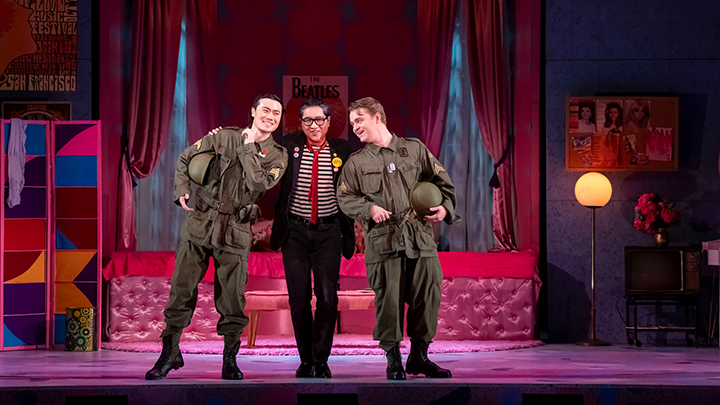

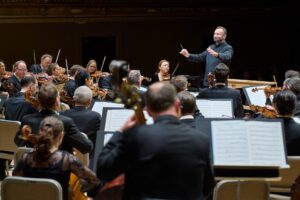
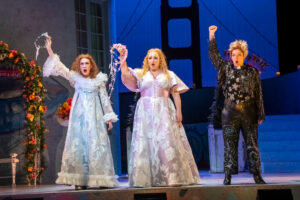
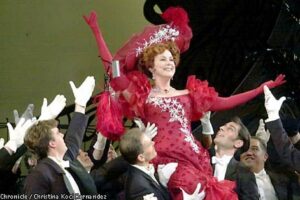
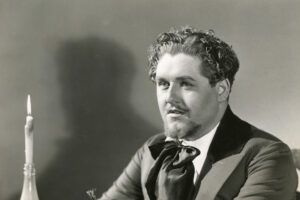

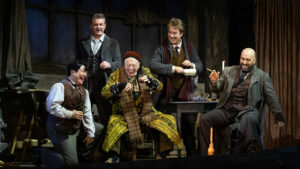





Comments